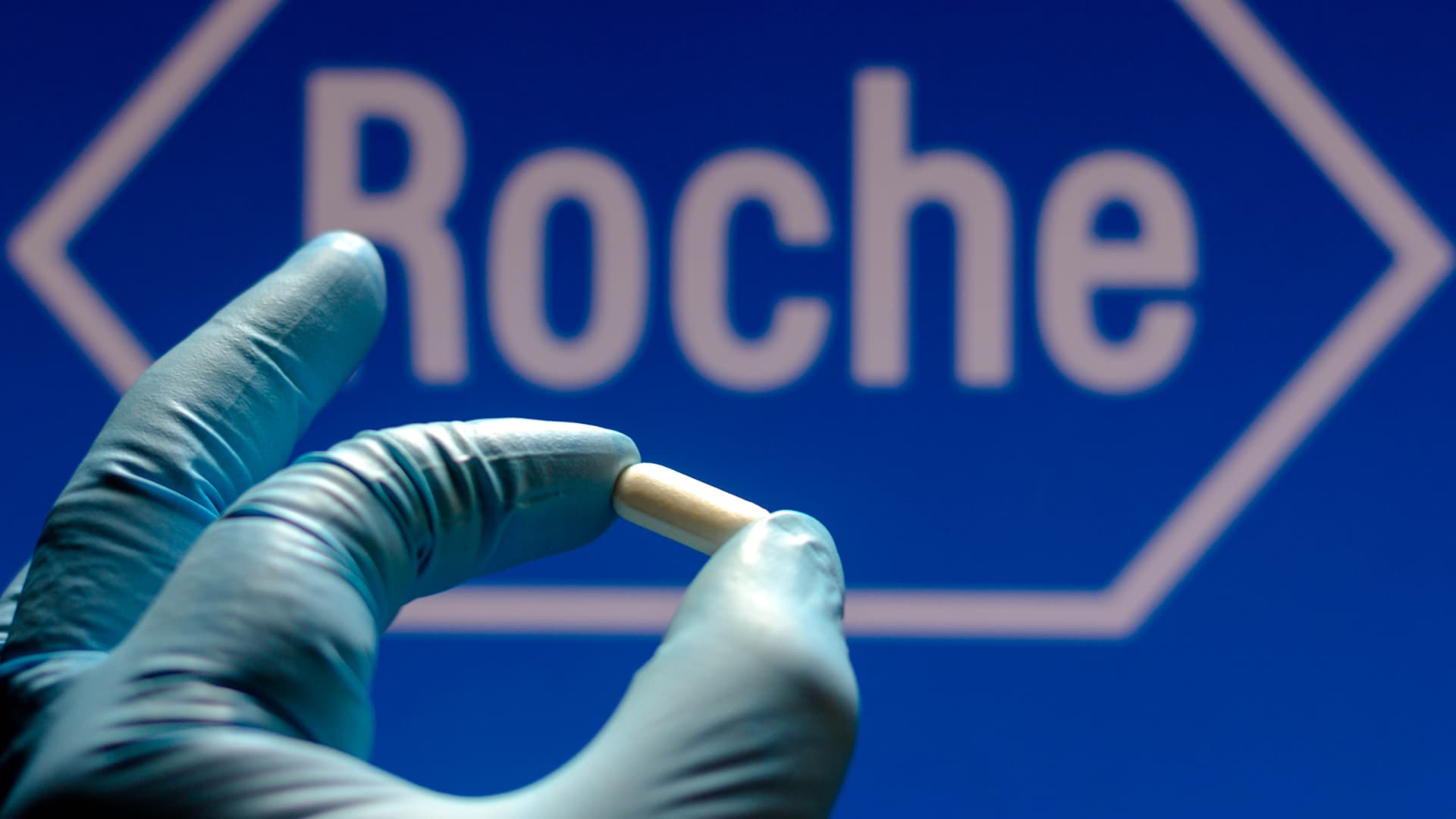Swiss pharmaceuticals giant Roche is set to acquire anti obesity drug developer Carmot Therapeutics, becoming the latest company to attempt to unseat Novo Nordisk and Eli Lilly’s dominance within the global weight-loss drugs market.
Under the deal terms, Carmot’s equity holders will receive $2.7 billion in cash on the transaction’s close and could pocket up to a further $400 million, depending on reaching certain milestones.
The U.S. takeover target’s early-stage technology could help crack highly prized oral obesity treatments, Roche Pharmaceuticals CEO Teresa Graham said Monday, but it may be several years before the drugs are widely available.
“These assets are all relatively early stage, so we would expect the 2030+ timeframe is when we’ll actually be able to bring these products to market,” Graham told CNBC’s Julianna Tatelbaum.
The deal will provide Roche access to Carmot’s current research and development portfolio, including all clinical and preclinical assets.
Shares of the Swiss company, which have been in the doldrums this year, were up 2.25% following the news of the acquisition.
California-based Carmot’s most promising drug candidate, a once-weekly injection called CT-388, belongs to a class known as dual GLP1/GIP receptor agonists — which are the same as those used by Eli Lilly’s Mounjaro, or Zepbound, and mimic a hormone typically released into the body after eating.
After encouraging Phase 1 trial results, the drug is now due to be tested on humans in the second of three trial stages, Roche said in a statement.
Carmot’s once-daily oral candidate known as CT-996, which is is currently undergoing Phase 1 trials, could help differentiate Roche in an increasingly crowded obesity drugs market.
“The products that we’re acquiring in 996 has some interesting data to it,” Graham said.
“I do think that we will figure out how to deliver these drugs orally; it’s just a matter of time,” she added.
Obesity pill trials ramp up
A series of pharmaceutical companies are currently trialing oral obesity treatments in the hopes of improving patient accessibility. Astra Zeneca last month announced that it would pay up to $2 billion for the rights to an experimental pill from China’s Eccogene, according to Reuters.
However, analysts have expressed caution over the efficacy of such treatments, and Pfizer dropped its plans for a twice-weekly pill last week after recording a spike in side effects.
It comes as new entrants pile into the global obesity market — estimated to be worth $200 billion within the next decade — while existing heavyweights Novo Nordisk and Eli Lilly struggle to keep up with soaring demand.
Roche was among one of the first drug makers to work on GLP-1 treatments more than a decade ago, but halted its initials trials after patients dropped out. Graham said Monday that now is a “great time” to be re-entering the market.
“We have a huge about of expertise to bring to bear from the diabetes franchise in diagnostics which I think will be a really exciting partnership,” Graham said. “The acquisition of Carmont only serves to bolster what is already quite an exciting and diverse pipeline.”
